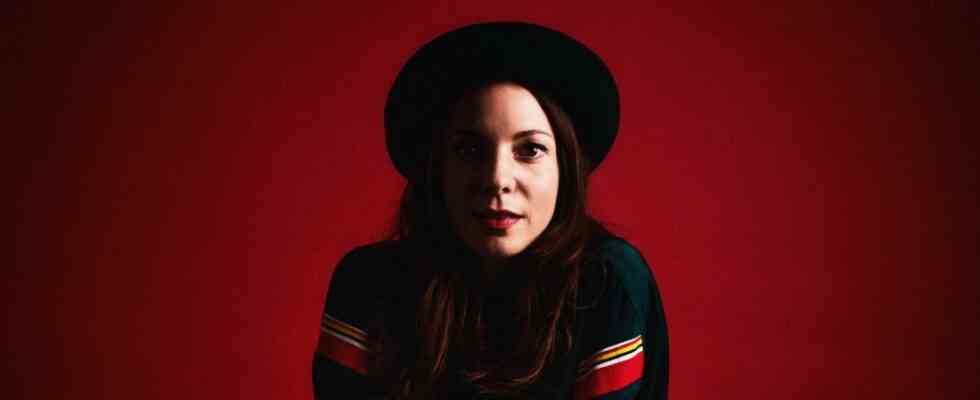The totally unofficial, but awarded with all the more vehemence SZ price for the album of the week goes to Masha Juno. “Uno” is the debut of a seasoned musician whose real name is Maria Schneider and who comes from Berlin. She sang in Dota Kehr’s band and made music at municipal theaters, will soon be on tour with Agnes Obel and, as a percussionist, also works with classical orchestras.
Many fruits of the lockdown are appearing these days – countless artists suddenly had a lot of time and did what they do best: no, don’t sink into depression, but write songs and record them. So does Masha Juno. And it was high time! It’s always surprising how much talent behind the stage pigs of the pop circus ensures that multifaceted, complexly arranged music is created at every show and can be reproduced live at any time. All the nicer when one of these hard-working workers does her own thing.
The album oscillates between guitar simplicity and casually elaborate song structures
“Uno” begins with a polyphonic, twenty-second a cappella intro: “I wont’t tell you the secrets of my heart.” That’s right, the lyrics of the album point into the open, there are no confessional lyrics here. “Better Times,” the opening song, starts off with a feigning tasteful, if somewhat conventional, folk-pop style with its finger-picked acoustic guitar, but suddenly swells towards the end and collapses over an instrumental called “Moroccan Joy,” which layers its rhythms and plays around one another leaves. This is where the percussion pro lets off steam. But – that’s the great thing – the result is not a cerebral etude, but an incredibly invigorating track under a sky full of synth flourishes.
So the album oscillates between guitar simplicity and casually elaborate song structures. It’s also formidably sung and produced. Mascha Juno’s voice keeps you warm in every register, every instrument sounds organic. Particularly nice, for example, in the fifth song, the return of the secrets from the intro that were not revealed: “I won’t tell you”.
Catherine Kollman says a lot more than that. These days she publishes under the tocotronic pregnant alias non-Seattle her second album, the title of which sounds a bit like coitus interruptus: “Communist libido”.
Here the word indie still tastes of freedom – and not of stale college lemonade
The focus here is on the slightly distorted e-guitar along with the authentic hum of the amplifier. At her side, of course, Kollmanns always a bit snotty, a nuance of astonished and a touch sad-brittle singing. And their texts. Because we’re in the old realm of true alternative music, when the word indie still tasted of freedom – and not of stale college soda.
“I am a predator, I can govern myself,” reads the first line. A determined, vulnerable, courageously perplexed predator speaks well. Because “there is really nobody who knows anything here”. How refreshing that someone with ancient indie melancholy pronounces it! Lucid musings, which appear to be overheard from kitchen table conversations at three in the morning, deliver non-Seattle’s lyrics non-stop. With a strict no-bullshit sound. Even the drums only come to visit once in a while. Tocotronic would surely bless this album.
Kelly Lee Owens delivers, on the other hand, the variety of machine beats. The Welsh singer has been a fixture on the electronic music scene since her self-titled debut in 2017. Whereby, “fixed”. Fluids would be better said. Because melodic tracks with gentle vocals can be found with her as well as minimalistic techno. As a prelude to her last album, she radioheads “Arpeggi” covered. Like a dialogue between wayward monophonic synthesizers. The current LP 8 is more rugged.
A hi-hat sucks in air that bass drum hits. Monotonously it begins, monotonously it goes on. Owens stoically repeats the word “release”. Only later do ambient areas open up to breathe a sigh of relief. They’re icy-jagged at times, sometimes drifting towards Blade Runner grandeur, but then with “Nana Piano” a montage of reassuringly creaky piano loops offers shelter. Experimental crackles and dull bangs pull you back into the factory hall. Instead of marching towards pop, Owens salutes old avant-gardists like Throbbing Gristle and clearly doesn’t want to be liked, but wants to make the music that feels right for them.

